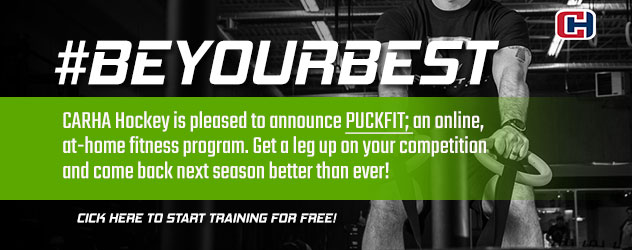Athletes have been making headlines this past year but not for their actions on the playing field. Familiar faces have emerged on the front lines, part of the response to the global pandemic.
It is not widely recognized that many athletes have transitioned to medical careers once they retire. Some even pursue their studies at the same time as their professional career. There are many parallels between professional sports and working in health care that entice athletes to pursue studies in medicine. Dedication to their practice, strong leadership, and experience under pressure may have helped prepare them for these unprecedented times.
Hayley Wickenheiser had a long-time dream of being a hockey player and a doctor. Following her retirement in 2017, the Canadian Hockey Hall of Famer and six-time Olympian enrolled in medical school at the University of Calgary although until the pandemic her current role as Assistant Director of Player Development for the Toronto Maple Leafs was probably more well known.
Amid her final year doing clinical rotation in emergency rooms around Toronto, Wickenheiser witnessed firsthand the devastating effects of the virus. When medical students were pulled from their assignments, unable to continue as cases surged, she turned to social media to raise awareness. Her plea for protective equipment for our front line health care workers scored big as she teamed up with actor Ryan Reynolds to collect donations. While not directly treating patients who have contracted COVID-19, she has assisted with contact tracing to track the spread.
Wickenheiser took her early experience in the hospital to advocate for the postponement of the 2020 Olympic Games in Tokyo, an influential figure behind Canada’s decision not to send athletes to compete before the International Olympic Committee officially postponed the games. As an Olympian and member of the International Olympic Committee Athletes’ Commission, it was necessary to use her voice and knowledge to speak out on behalf of the participants.
Another notable Canadian who has made a big play is Kansas City Chiefs right guard Laurent Duvernay-Tardif. Going from winning the Super Bowl in February to being on the front lines in April was not how he saw his post-season going, but it’s a decision he does not regret.
The McGill graduate, who has yet to complete a residency, responded to the call by returning to his home province of Quebec where there was desperate need for healthcare workers in long-term care homes. The move caught the attention of many and for his actions on the front lines, Durvernay-Tardif was named co-winner of the Lou Marsh Trophy as Canada’s athlete of the year, Sports Illustrated’s 2020 sportsperson of the year, and his medical scrubs are currently on display in the Pro Football Hall of Fame.
While his team returns to the Super Bowl, Duvernay-Tardif will cheer them on as he’d opted out of the season with the Chiefs. A member of the COVID-19 task force for the NFLPA, he had no concerns about the protocols in place for the players to return but felt his calling was to stay home where he was needed most. “Being on the front line during this offseason has given me a different perspective on this pandemic and the stress it puts on individuals and our healthcare system. I cannot allow myself to potentially transmit the virus in our communities simply to play the sport that I love. If I am to take risks, I will do it caring for patients."
Earlier in January, Wickenheiser and Duvernay-Tardif received their first dose of the Covid-19 vaccine, documenting it on social media. In a post of appreciation for medical science and those behind the fight, Wickenheiser included an infographic created by the University of Waterloo School of Pharmacology to dispel vaccine myths. Using their platform and experience on the front lines, these two have exercised their powerful voices to spread the message of the vaccine’s effectiveness and encourage others to get it when their time comes.
Teamwork is critical as collectively we do our part. Athletes understand the value of working towards a common goal, and around the world they are putting their medical degrees to the test. Here we recognize more of those individuals who are using their skills and platforms in the fight against COVID-19:
- Susan O’Connor, Canada – the former curler who won a silver medal with Cheryl Bernard’s team at the Vancouver 2010 Olympics is a Respiratory Therapist. She has described her experience treating patients in a blog for Curling Canada.
- Joannie Rochette, Canada – The Vancouver 2010 bronze medallist in figure skating received her medical degree from McGill University in the spring of 2020. She is currently working in a Quebec long-term care facility.
- Heather MacLean, Canada – The former swimmer who represented Canada in London 2012 now works at Mount Sinai Hospital in high-risk deliveries and fetal procedures unit.
- Michelle Toro, Canada – The bronze medallist with the 4x100m freestyle relay team at Rio 2016 is a nurse in the neonatal intensive care unit at The Hospital for Sick Children in Toronto.
- Kim Clavel, Canada – The boxer and North American Boxing Federation light-weight champion returned to working as a nurse in long-term care homes in Quebec when the pandemic interrupted her fighting career. Last year she became the first Canadian to receive the Pat Tillman Award for Service at The ESPYS.
- Maryse Turcotte, Canada – The former weightlifter works as a gerontopsychiatrist at the Sainte-Croix Hospital in Drummondville, caring for seniors’ mental health.
- Jennifer Fratesi, Canada – After retiring, the 2004 Olympian earned her medical degree from the University of Waterloo and now works on the front lines as a thoracic radiologist at the University Health Network in Toronto monitoring those with the virus.
- Jenny Thompson, USA – The 12-time Olympic swimmer is now a physician anesthesiologist in Charleston, South Carolina.
- Myron Rolle, USA – The former NFL safety with the Tennessee Titans is currently a neurosurgery resident at the Harvard Medical School and Massachusetts General Hospital.
- Joyce Sombroek, Netherlands – Not long ago regarded as the finest goalkeeper in women’s international field hockey, the Olympian who won gold in London 2012 and silver in Rio 2016 is now a doctor outside of Amsterdam working on front lines and training to become a General Practitioner.
- Rachael Lynch, Australia – Unable to compete in Tokyo last summer, the field hockey goalie applied to work as a registered nurse in a COVID-19 clinic in Perth.
- Jo Brigden-Jones, Australia – The kayaker who planned on retiring following the Tokyo Olympics returned to her job as a paramedic for New South Wales Ambulances when the games were postponed.
- Vicky Wright, Scotland – The two-time curling champion returned to the NHS front lines as a nurse for Forth Valley Royal Hospital when her season came to an end. She had been doing one shift a week prior to the pandemic as her training for Beijing 2022 permitted.
- Kim Daybell, England – The two-time Paralympian in table tennis has been working as a junior doctor at Whittington Hospital in Highgate. He had previously been part-time to accommodate training for the 2020 Paralympic games.

